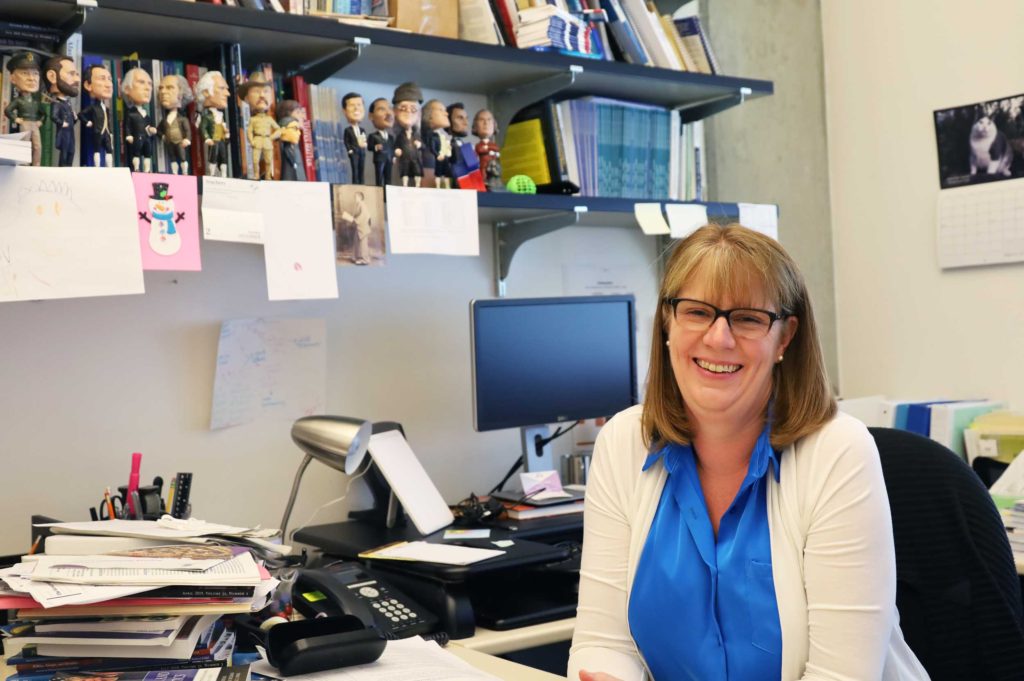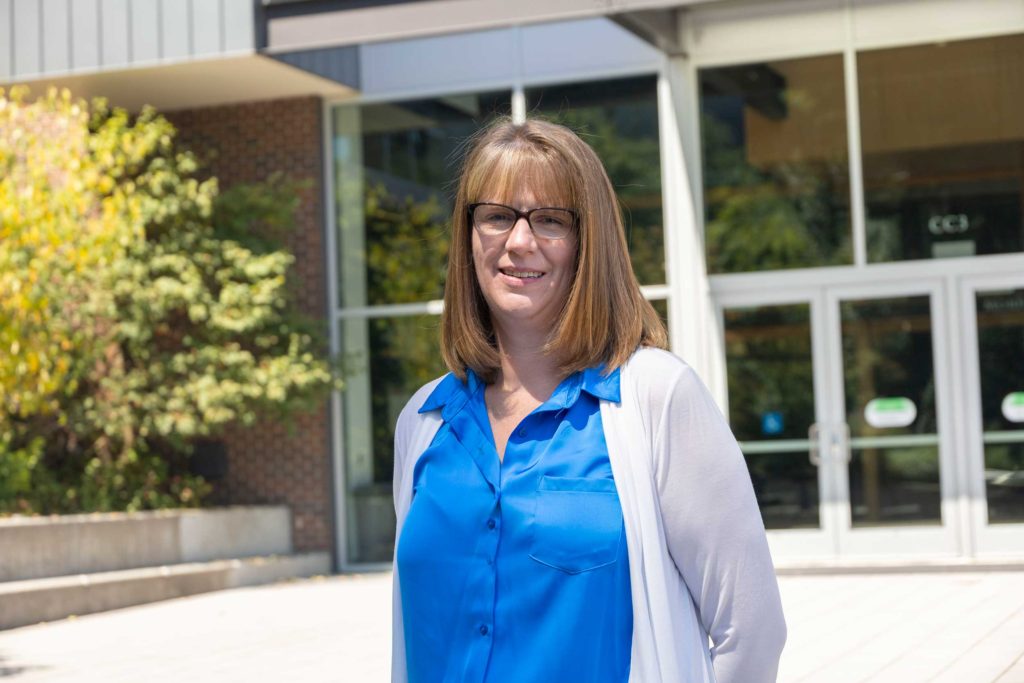Anyone who engages with Cascadia for just a moment learns about our special identity – and Tenured Faculty, Erin Richards, epitomizes our values of diversity of thought and background and collaboration – to name a few. She believes deeply in the philosophy of teaching students to think creatively, critically, and reflectively; to learn actively; to interact in complex and diverse environments; and to communicate with clarity and originality.
Like so many of Cascadia’s faculty, Erin lives and breathes the subjects she teaches. And like her colleagues, her specialty – political science – represents her professional calling. She has published book chapters and articles on teaching at community colleges and worked on multi-campus projects on the role of American Government courses in promoting citizenship education and engagement. She has been actively involved in the American Political Science Association (APSA) – as the first community college faculty member elected to serve on the organization’s governing council.

Before joining Cascadia in 2007, Erin earned a Bachelor of Arts degree in international relations from Mount Holyoke College in South Hadley, Massachusetts, and a Master of Arts degree in political science from Washington State University. Throughout her education, her studies focused on American Government institutions and voting behavior, state and local Government, and women in politics.
Erin taught at Washington State University as well as several community colleges in the state before finding her way to Cascadia. Fifteen years later, Erin is most passionate about citizenship and civic engagement, as well as the study of political science pedagogy (the study of how to teach) – chiefly, finding the most effective ways to get her students excited about government and citizenship.
What keeps Erin energized is Cascadia’s community-based culture of learning – where working with others to create solutions to problems inspires new ideas and perspectives. Cascadia’s approach is particularly effective in the areas of political science and civic engagement. Students have the flexibility to be creative, for example, when producing quarter-end project ideas in her political science class. Erin enjoys assigning a project where students are challenged with taking a key concept from her course – and teaching it to someone else. What results is a rap song about registering to vote, a board game that explains how we can register to vote, or a beautifully illustrated children’s’ book that describes different ways we can participate in government.
Faculty and students alike are provided the space to try new things and not have all the answers.
“It’s not just students who enjoy learning about new ideas or get opportunities to think about different perspectives. Teaching a course side-by-side with a faculty member from an entirely different discipline offers great opportunities to grow as an educator – and to innovate. Learning communities are one of my favorite things about Cascadia.”
Most recently, Erin introduced Citizen’s Campaign into her curriculum – a program that seeks to restore civility to our political discourse through a clear set of steps and goals. The program removes the blame-game – and instead, helps members of any community to identify and define a problem, locate the people who have the power to resolve it, and create a plan together. Putting the plan together, in fact, requires students to learn how to conduct civic research.

It is particularly popular with students who are frustrated with our community’s inability to talk to each other – because it allows them to come to solutions through cooperation. Student projects generated ideas that addressed confusing traffic signage; repurposed an empty gas station into a community visitor center; provided housing in empty hotels for the homeless; and installed sidewalks near schools to reduce the danger of being hit by a car.
Ultimately, students learn that they can have a voice – and can leverage power – in politics; that civic engagement is not something to be avoided; and that local government in particular affects everyone.
Programs like Citizen’s Campaign are well suited to Cascadia – and community colleges in general – and for several reasons. Community colleges serve the community in which they reside – they are their community’s college. And unlike four-year institutions, the majority of Cascadia’s students will remain in our community after they graduate. Ultimately, Citizen’s Campaign will help our community understand that they can play a role as unelected citizen leaders – that they can find successful solutions to local challenges.
The Cascadia College Foundation provides essential financial assistance to students through scholarships, grants, and other forms of aid – and supports important college programs. Through our support, we enhance student success and strengthen Cascadia College’s community.
© Cascadia College 2023
18345 Campus Way NE • Bothell, WA 98011 • 425-352-8840 • foundation@cascadia.edu